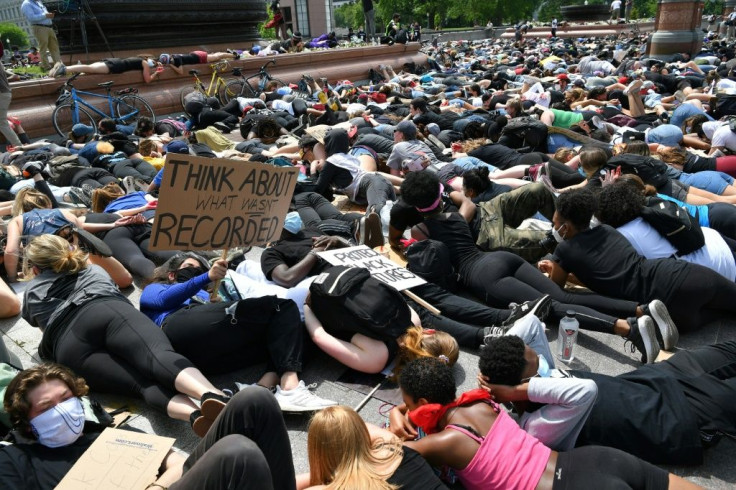Coronavirus USA: Former FDA Commissioner Says Protests Could Exacerbate Second Wave Of Virus

Former Food and Drug Administration Commissioner Dr. Scott Gottlieb told Yahoo News on Sunday that ongoing protests due to the killing of George Floyd could exacerbate the second wave of the coronavirus. Large groups of young people are often seen at the demonstrations, and they could be spreading the virus asymptomatically.
“That increases the risk that you have asymptomatic spread within those gatherings,” Gottlieb said. He urged protestors to wear masks and practice social distancing, but claimed there is still a risk the virus can spread in the crowds.
“There’s still risk because you’re bringing together large groups of people, and the risk is going to correlate with the background rate in the population,” he continued. “I think we’re going to see some chains of transmission get lit from these gatherings, and we need to understand that.”
Mass protests against racial injustice have taken place across the U.S. after Floyd, a 46-year-old African-American, died after a Minneapolis police officer pressed his knee on Floyd's neck for nearly nine minutes.
Gottlieb said the U.S. could be slammed by both a second wave of the virus and the seasonal flu in the fall.
“That’s a lot of risk to be taking into the fall for a second wave, and that’s what I worry about — that we never really crushed the infection, we have this slow burn through the summer, and it sets us up for a very difficult fall COVID/flu season,” he said.
Gottlieb’s comments echo those of Dr. Anthony Fauci, a member of President Trump’s coronavirus task force.
"It is the perfect set-up for the spread of the virus in the sense of creating some blips which might turn into some surges,” Fauci told radio station WTOP-FM in Washington, D.C., on Friday about the protests.
"It's a difficult situation. We have the right to peacefully demonstrate and the demonstrators are exercising that right,” Fauci continued. “It's a delicate balance because the reasons for demonstrating are valid and yet the demonstration itself puts oneself at an additional risk."
Vaccines are in development around the world, and may not be available until next year. Fauci said earlier in the week that “we hope to have a couple of hundred million doses," by the beginning of 2021.
Remdesivir, a drug produced by Gilead Sciences, has been effective in treating some cases of the virus. Dr. Robert Kadlec, a U.S. Department of Health and Human Services official, told CNN on Monday that the government’s supply of the drug will run out by the end of the month.
The United States currently has the most cases of the coronavirus in the world. As of Monday at 4:00 p.m. ET, there are 1,954,236 cases of the virus in the U.S. and a death toll of 110,845.
© Copyright IBTimes 2025. All rights reserved.





















